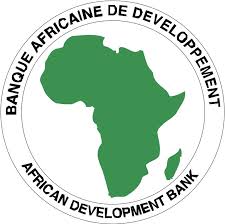By Byron Mutingwende
Women have hailed their recognition in economic contribution after the African Development Bank Group and the International Finance Corporation signed a memorandum of understanding on Tuesday, May 22, 2017 in Ahmedabad, India, aimed at promoting investments that benefit women in Africa.
Over the past decade, the number of women entrepreneurs in Africa has grown steadily. Whether in steel manufacturing companies in South Africa, textile and clothing designers in Ethiopia, high-tech developers in East Africa or cocoa agro-processing businesses in West Africa, female entrepreneurs have taken their place on the business landscape.
The Africa Gender Equality Index shows that female entrepreneurship on the continent is the highest in the world. However, access to finance for women is still seriously impeded.
Speaking at the signing ceremony, Akinwumi Adesina, President of the African Development Bank Group, said: “Women pay back loans. They are bankable, but the banking system does not lend to them. We want to change this; we want to de-risk the financial system and allow institutions to give loans to women.
Together the AfDB and the IFC are showing confidence in women’s bankability.”
AfDB’s Affirmative Finance Action for Women in Africa (AFAWA) program, launched at the 2016 Bank’s Annual Meetings, aims at providing available, accessible and affordable financial services to women in business through selected financial institutions.
Tapping into the business potential of half of the continent’s population is a crucial element in achieving more inclusive and sustainable growth. And while women’s access to financing is essential in advancing their economic capacity, the African Development Bank (AfDB) estimates that the financing gap for African businesswomen is as large as US $42 billion, of which US $15.6 billion is lacking for women in agriculture (A2F Consulting 2016).
The MoU between the AfDB and the IFC, signed on the sidelines of the Bank Group Annual Meetings is an important milestone in reducing the financing gap for female entrepreneurs. AfDB runs the AFAWA Program and IFC runs the Banking on Women Program. The two programs complement each other.
AFAWA will leverage financial inclusion instruments, capacity development, training, mentoring, information and knowledge-sharing to empower female entrepreneurs by mobilizing some US $3 billion over 10 years. The Banking on Women Program – where IFC plays a catalyzing role for partners and financial institutions – is helping to support women-owned businesses in a sustained manner. The corporation also works with value chains of local, regional and global corporates to strengthen and broaden access to finance, training and markets for women business owners.
Emphasizing the catalytic role of the IFC to support financial sector development inclusive of women, IFC Vice-President and Treasurer, Jingdong Hua, referred to India as their key destination not only for overall investments but also for local currency lending. By mainly investing in Indian rupees, they are able to reach out to women entrepreneurs. In fact, as the largest portion of women-led small and medium enterprises (between 32-39%) are present at the smallest business segment, hence mostly operate in the local market and cannot afford to carry the burden of foreign exchange.
“The IFC will be with the AfDB under the leadership of President Adesina every step of the way to implement the High 5 Agenda. Agriculture and women entrepreneurship are two areas of expertise of the IFC and this MoU is a unique opportunity to scale financing for women in agriculture”.
The IFC and the AFDB have worked together to develop of the AFAWA Program. Today, they are committing to joint investments that, when scaled, will tangibly impact African women, contribute to Africa’s inclusive economic growth, and catalyze agricultural transformation on the continent. They will empower women to access affordable and targeted finance. They will also introduce a number of measures to support the reform of the financial sector through strong and smart polices, appropriate rules, clear legislation and regulations in order to create the enabling environment in which women entrepreneurs can thrive.
They will also increase women’s access to higher added-value markets by supporting and strengthening their capacity to participate in the global value chain. They will call for preferential access through for example quotas, targets, and tax exemptions, and further equip them with the skills and knowledge they need to succeed on the continent.
The signing of this MoU is a testimony to the shared AfDB and IFC commitment to meeting the challenges women MSMEs face in Africa, and their joint belief in the value and potential that businesses run by women offer to developing Africa’s private sector. The MoU demonstrates the long standing relationship between the two bodies, and their commitment to take on joint investments to reach the scale and impact African women deserve.
In an interview, Zimbabwe’s Minister of Small to Medium Enterprises, Sithembiso Nyoni hailed the move saying it provided a window of opportunity for women to set up and manage their own businesses.






